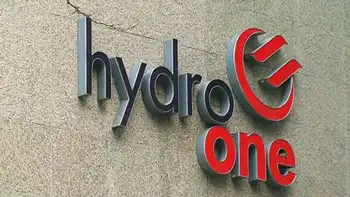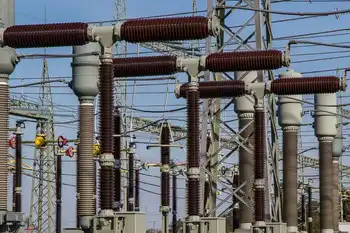U.S. lawmakers reject nuclear in renewable power goal
By Reuters
CSA Z463 Electrical Maintenance -
Our customized live online or in‑person group training can be delivered to your staff at your location.

- Live Online
- 6 hours Instructor-led
- Group Training Available
The sweeping bill, which seeks to cap greenhouse gas emissions, includes a renewable energy mandate that would require utilities to generate 15 percent of electricity from renewable sources such as wind and solar by 2020.
Under the legislation sponsored by Democratic Representatives Henry Waxman and Edward Markey, utilities' renewable mandate would be reduced in proportion to the portion of any electricity sales from new nuclear plants, but not existing nuclear plants.
Republican Representative Cliff Stearns of Florida, who offered the failed amendment, said the measure would have helped states meet the renewable electricity standard with a source that has no carbon emissions.
Waxman argued that the bill was not discriminating against nuclear power, but that nuclear was not renewable energy because it requires uranium, a limited resource. Also, he said the renewable standard was aimed at promoting new power sources and technology.
The House Energy and Commerce Committee is in its third day of debate of a nearly 1,000-page climate change bill, which seeks to reduce greenhouse gas emissions 17 percent below 2005 levels by 2020.
The panel approved a measure that would require the State Department and U.S. Trade Representative to annually prepare and publicize a report on whether China and India have adopted greenhouse gas emission reduction programs as stringent as those found in the United States.
An amendment requiring the Energy Department to develop rules for enforcing any national energy efficiency building code established through this legislation was also approved.
Republicans have blasted the legislation, warning that it could drastically curb the United States' economic growth by making U.S. companies less competitive internationally with countries such as China and India that will likely not have strong climate change regulations.
"A cap and trade program will never be made to work in an economy as diverse and complex as the United States. It's just not possible. It's going to cost a lot of money and a lot of jobs," Republican Representative Joe Barton of Texas told reporters on the sidelines of the hearing.
A poll conducted by Reuters found that Democrats have the votes to get the climate legislation passed by the committee. Of the 59 members on the House committee, 30 lawmakers, all of them Democrats would definitely vote "yes" or were likely to support the bill, according to the survey.
Barton predicted, however, that the Waxman-Markey bill would not make it into law.
"This cap and trade exercise that we're about to engage in, is an exercise in futility on their side. Even if they muscle it out of committee, it's not going anywhere."
The heart of the historic bill would set up a system limiting carbon dioxide and other pollutants by gradually reducing the amount of greenhouse gases that utilities, steelmakers, oil refineries and other companies can emit. Businesses would be required to acquire an ever-decreasing number carbon pollution permits.
A separate report from the Energy Information Administration said U.S. carbon dioxide emissions from fossil fuels fell by 2.8 percent in 2008, the largest drop since the agency began reporting greenhouse gases. The agency said high oil prices and the slowing economy were factors in the decline.











